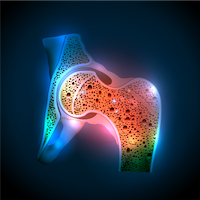Microbiome and Nutrition
The complex community of bacteria, yeasts and viruses living in our intestines, collectively known as the gut microbiome, is shaped, in part, by what we eat. Genetics, environment, and other factors also influence an individual’s microbial community. Research at the NRI investigates these complex relationships and their impact on disease risk. We use animal models and bioinformatics to study the associations between nutritional metabolites, gut microbiome, and health. What happens in the gut doesn’t stay in the gut. Your microbiome can play a role in cardiovascular disease, obesity and diabetes, and even cancer. Our team envisions a future where analysis of your microbiome can determine disease risk, and medical foods can be prescribed to treat and prevent disease by regulating the microbiome.
Publications
Microbiome and Nutrition Publications
2020
Population studies of TMAO and its precursors may help elucidate mechanisms. Meyer K
2019
Association of dietary patterns with the gut microbiota in older, community-dwelling men. Meyer K
2018
Meta-analysis of human genome-microbiome association studies: the MiBioGen consortium initiative. Meyer K
Human microbiota, blood group antigens, and disease. Sumner S
2017
Trimethylamine N-Oxide, the Microbiome, and Heart and Kidney Disease. Zeisel S
2016
Diet and Gut Microbial Function in Metabolic and Cardiovascular Disease Risk. Meyer K
Antibiotic-mediated gut microbiome perturbation accelerates development of type 1 diabetes in mice. Sumner S
Related News
Eggs May Enhance Infant Brain Development, Researchers Find
June 29, 2018 – Early introduction of eggs boosts infant blood concentrations of several key indicators of brain development, a recent study in Ecuador found. The results could have implications for infant nutrition in both the developing and developed worlds.
Genetic Factors in Determining Bone Mass
June 29, 2018 – Osteoporosis is a serious public health concern and causes significant economic burden. Currently, about 54 million people in the United States have osteoporosis or low bone mass. It is projected that by 2025, the incidences of bone fracture will be 3 million, resulting in about $25 billion in medical costs each year. Among different ethnicities, Hispanics are estimated to have the most rapid increase in osteoporosis burden by 2025.
Breastfeeding and Maternal Alcohol Use: Prevalence and Effects on Child Outcomes and Fetal Alcohol Spectrum Disorders
Fetal Alcohol Spectrum Disorders and Assessment of Maxillary and Mandibular Arc Measurements
AFL Program Summaries September 2017-May 2018
Appetite For Life - September 27, 2017, with Folami Ideraabdullah, PhD: "Vitamin D and Human Health: 10 Things Your Mother Never Told You". Vitamin D is an essential vitamin linked to human health and diseases such as cancer, diabetes, and heart disease. It occurs...
June 2018
NRI Included in UNC Creativity Hubs Inaugural Award to Study Obesity May 30, 2018 – Five NRI faculty members are among a team of UNC researchers receiving an award to study one of the world's most pressing issues: the obesity epidemic. The cross-disciplinary team,...



